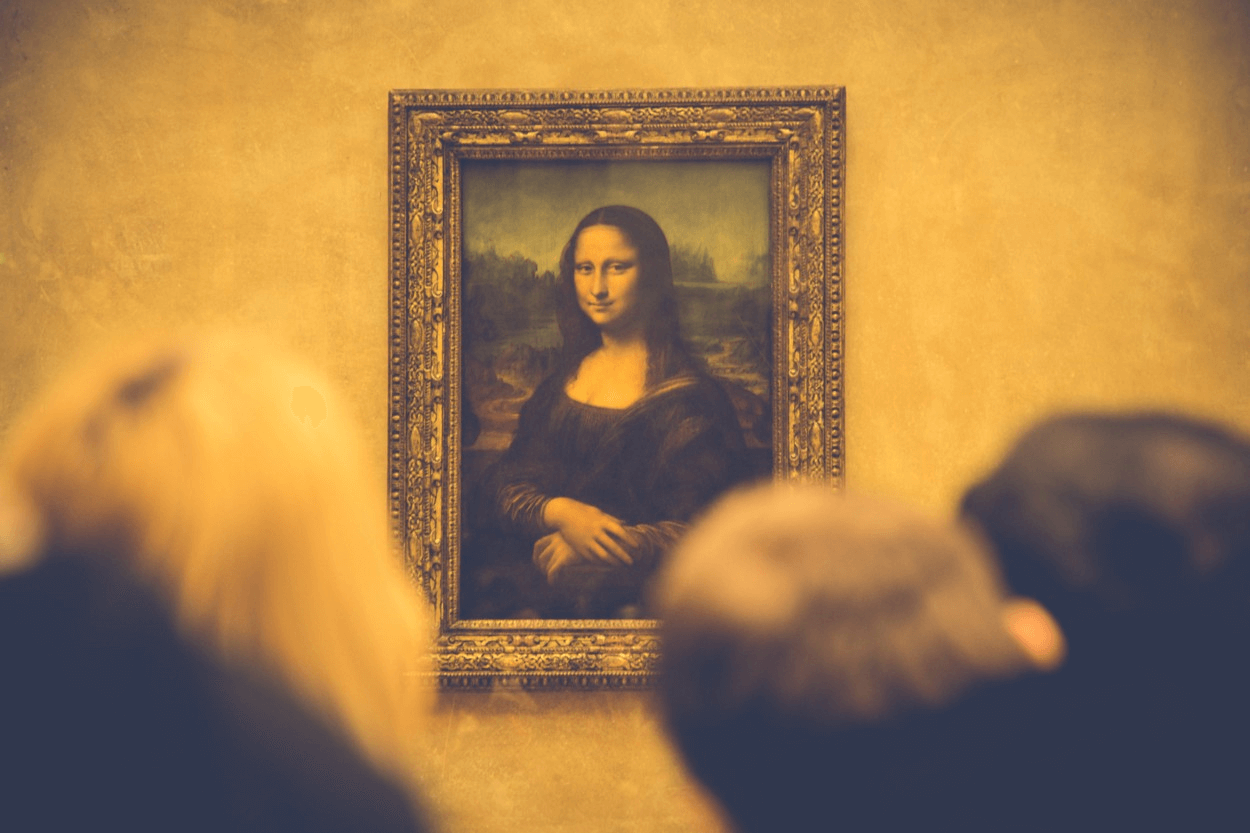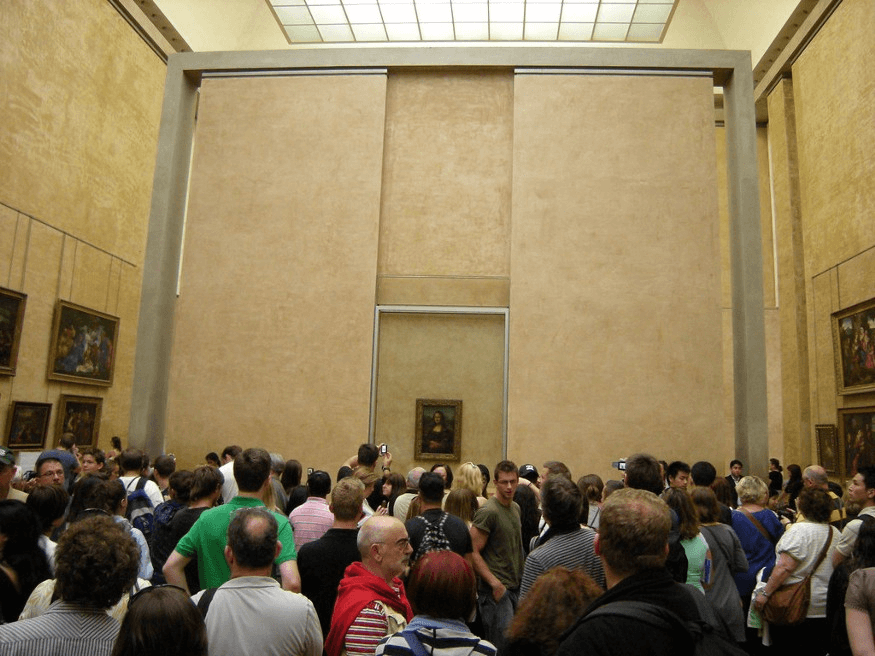今日推荐开源项目:《Dev-Cpp v6.0》
今日推荐英文原文:《Is it Good Because it’s Popular — or is it Popular Because it’s Good?》

今日推荐开源项目:《Dev-Cpp v6.0》传送门:项目链接
推荐理由:经典到可以称作“古老”的 IDE Dev-Cpp 在2020年10月12日更新到了6.0版本,上一次更新是2020年7月,而上上次则是2015年。最新版本包括 TDM-GCC 的更新、 win10 风格的主题、更高分辨率的图标样式等等。

今日推荐英文原文:《Is it Good Because it’s Popular — or is it Popular Because it’s Good?》作者:Genius Turner
原文链接:https://psiloveyou.xyz/is-it-good-because-its-popular-or-is-it-popular-because-it-s-good-a9b091768e09
推荐理由:有人抱怨参观卢浮宫的人大多数只奔着蒙娜丽莎而去,却忽视了展馆里其他没那么有名但是同样有着巨大艺术价值的展品。相信自己的感觉就好。
Is it Good Because it’s Popular — or is it Popular Because it’s Good?
To Know Thyself is to Trust Thy Perceptions
I. This Picture is Worth 1,000 Words & 1,000 Phone Camera Shots, Too

(Photo by Eric TERRADE on Unsplash)About a year or so ago, my friend Carol recalled her visit to the Louvre. “Oh,” she gushed, “Would you believe I was standing mere feet from her?”
“You talking about Her as in that weird movie when Joaquin Phoenix falls in love with his computer?” I joked.
“No, silly,” she continued. “I’m talking about the real ‘her’ . . . as in the Mona Lisa.”
I flashed a smile. “How was it?”
Carol briefly rested her eyelids, so as to delight in reviewing — with third eye — “her” posing in a frame. “It was magical, Genius! And I mean it . . . magical.”
“What made it so magical?”
She exhaled. “The energy in that room . . . ahhh, it was like nothing I’d ever experienced. As I stood in a crowd, we all huddled around history’s most famous work of art. I mean, it damn near felt like being in the same room with Michael Jackson or Oprah or something.”
“Awww, I see! So you’re comparing a 500-year-old painting to Oprah . . . seriously?”
“Listen,” she continued, “just as Oprah has security, Mona has security! Just as Oprah rides in vehicles with a bulletproof glass window, Mona sits behind a bulletproof glass window.”
Sensing I was onto something, I prodded. “So you’re pretty much saying just as if Oprah were seated in the same room you’d all be huddled around her with the camera phones out, at the Louvre . . . let me guess — everyone had their camera phones out, huh?”
She then showed me pictures.

(Though a picture is worth 1,000 words, the Mona Lisa is worth 1,000 phone camera shots, too. (Pic: Leandro/Flickr/CC BY 2.0.))To my surprise, Carol didn't exaggerate one bit. Pictured was the Mona Lisa accompanied by security guards flanked on each side of the roped-off section. Talk about a glaring instance in which art imitates life.
Because every picture tells a story, every story must paint a picture!
I found myself grappling with how on earth has this particular painting which Da Vinci never finished, which depicts an ordinary lady named Lisa del Giocondo, has arisen to such heights as to be crowned “the greatest work of art in history.”
Really?
Note how Walter Isaacson waxes poetic about the world’s most popular piece of art:
The Mona Lisa, to me, is the greatest emotional painting ever done. The way the smile flickers makes it a work of both art and science, because Leonardo understood optics, and the muscles of the lips, and how light strikes the eye — all of it goes into making the Mona Lisa’s smile so mysterious and elusive.“Greatest emotional painting” . . . “smile flickers” . . . “muscles of the lips.” Excellent! But is this relatively miniature — half-finished portrait of the half-smiling Lisa del Giocondo — really that much “emotionally” superior to the other 52 masterpieces housed in the Salle des États?
Or could it be, the greatness in question merely reflects the popularity, not the popularity reflects the greatness?
Perhaps Jay-Z best summed up this age-old curious phenomenon:
People respect success. They respect big. They don’t even have to like your music. If you’re big enough, people are drawn to you.”
II. To Know Thyself is to Trust Thy Perceptions
Picture, if you will, being in a coma. As you’re lying in a hospital bed — surrounded by loved-ones and flowers that flank your bedside — does any of this have existence to you?Ahh, but the instant those eyelids for curtains of yours lift . . . abracadabra — the world’s stage adorned with all its actors magically appears. Poof!
In other words, there’s no “reality,” only perception. Hence your perception is your reality! For this reason, to allow others to sway your perceptions — by way of popular vote — is to essentially allow them to control your reality.
Bingo!
To Know Thyself is to trust Thy Perceptions. After all, given that we each made our grand appearance on the world’s stage as a solo act and we’ll make our graceful exits stage left all by our lonesome, why not live our lives on our own terms?
I recall my teenage cousin giving me a hard time because I’m not a fan of mumble rap. “Bro,” he said, “you ain’t cool no more! Don’tcha know — the Migos is what’s in now?”
“Well,” I mumbled back so as to stress my point, “I must be out now.”
Perhaps my cousin didn’t get the memo:
It’s impossible to shame someone who is indifferent to the world’s opinions. After all, to Know Thyself is to trust Thy Perceptions.I recall another case in point.
Some friends of mine hosted a “Game Of Thrones” viewing party. It was the famed season 8 premiere. The world stood still. And so did I — still while fast asleep on the couch within the first few minutes.
“Ugh!” groaned my buddy. “Clearly you don’t get it.”
I scratched my head. “And clearly — nobody told me it was sent.”
III. In Closing
“To be yourself in a world that is constantly trying to make you something else is the greatest accomplishment.” Emerson’s grand statement serves as my mantra.Because I know myself, I know the Mona Lisa is no different from any other portrait. Regardless of how famous and mysterious her smile is said to be, in my eyes — the portrait is no different from any other.
Because I know myself, I know vegetarianism feels closer to the Golden Mean and the Middle Way than veganism.
No way, no how am I wasting the few grains of sand left in the hourglass bickering over whether consuming eggs is right or wrong. Besides, as Shakespeare noted, “There is nothing either good or bad, but thinking makes it so.”
As my buddy and fellow vegetarian Essence — who refuses to cave in to the pressure to conform to the latest Manhattan trend of outright veganism — loves to say: “If it can pee or poop, I don’t eat it. Other than that — bon appétit!”
Because I know myself, I know I’m not comfortable writing listicles. I know, I know — monkey see, monkey do. But I’ve never been one to “monkey around.”
Perhaps such independence of spirit merely reflects my having grown up an only child. Perhaps. Whatever the case may be, Experience — that hard teacher which gives tests before study guides — has taught me the following invaluable lesson: in a world where the blind follows the blind, whoever dares open his eyes and follows his own path will naturally become a leader!
In short, because there’s no “reality” apart from my private perceptions, until that fateful day when I finally twirl into the Reaper’s grim arms, I’m going to trust my own perceptions. After all, as The Bard noted:
“If we are true to ourselves, we cannot be false to anyone.” — Shakespeare
下载开源日报APP:https://openingsource.org/2579/
加入我们:https://openingsource.org/about/join/
关注我们:https://openingsource.org/about/love/
